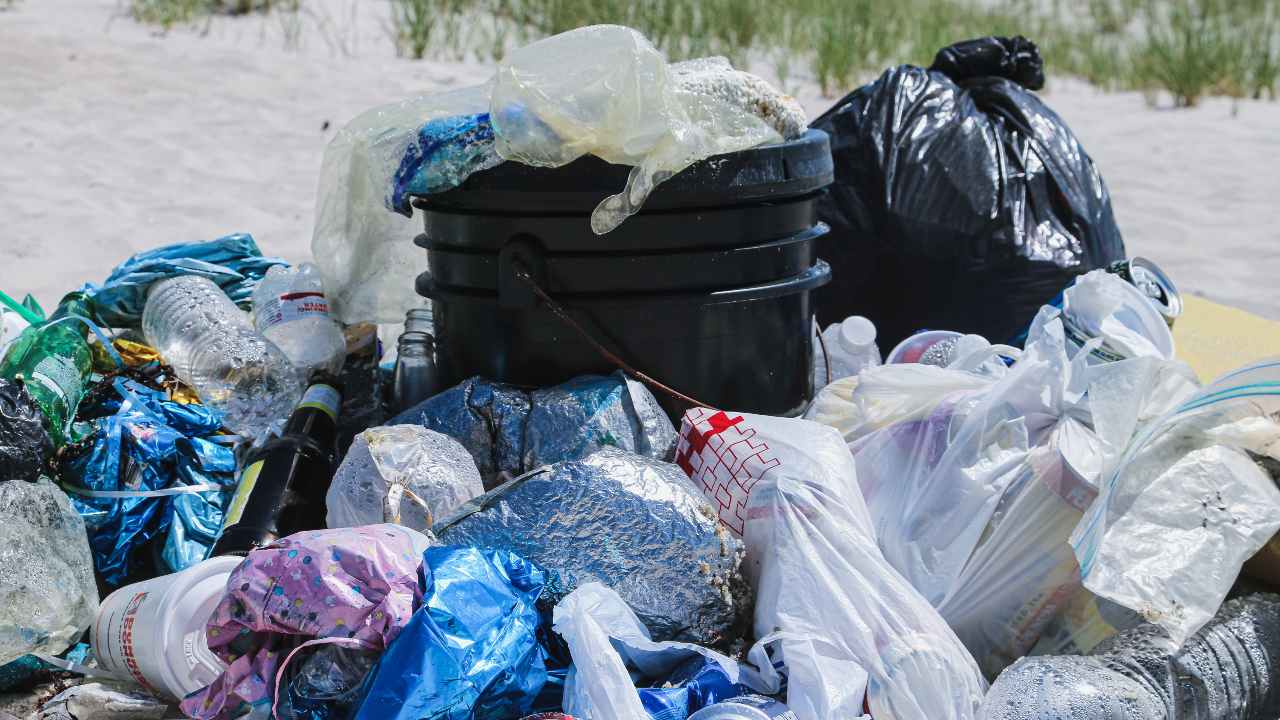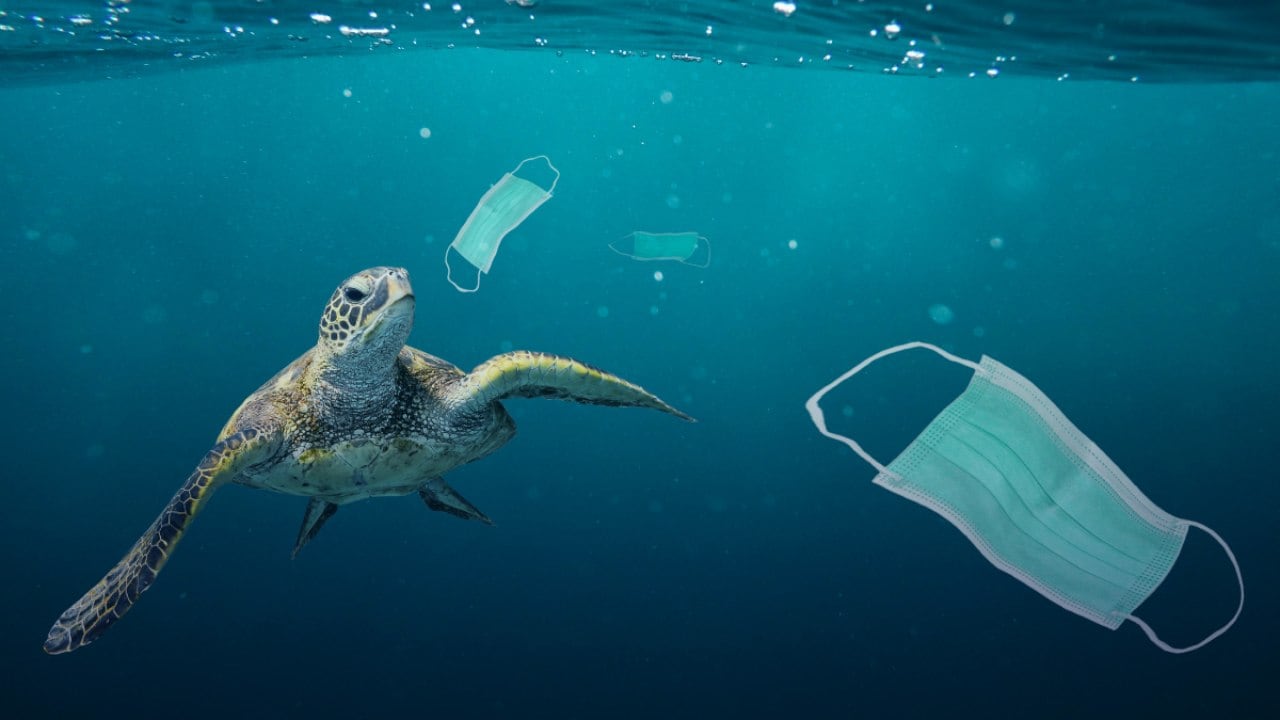tech2 News StaffDec 11, 2020 16:33:27 IST
Coca Cola, Pepsico and Nestle are named the most polluting companies in the world, for the third time in a row. In fact, the amount of plastic waste generated by Coca Cola, 13,834 pieces across 51 countries, was more than the waste collected by Pepsico and Nestle combined. This data was reported by Break Free From Plastic in its third annual report “BRANDED Vol III: Demanding Corporate Accountability for Plastic Pollution” that was released on 2 December. The annual survey was conducted by 15,000 volunteers in 55 countries, where they collected 346,494 pieces of plastic from their surrounding environment.
Break Free From Plastic (BFFP) is a global movement that was launched in 2016 and has been releasing reports since 2018, naming the most polluting organisations around the world. They work with thousands of volunteers and non-governmental organisations on a global scale to count and document the brands on plastic waste found in countries.

Break Free From Plastic states that these multinational corporations are pumping out so much of single-use plastics that plastic production could double by 2030 and triple by 2050.
“It’s not surprising to see the same big brands on the podium as the world’s top plastic polluters for three years in a row. These companies claim to be addressing the plastic crisis yet they continue to invest in false solutions while teaming up with oil companies to produce even more plastic,” said Abigail Aguilar, Plastics Campaign Regional Coordinator, Greenpeace Southeast Asia in a statement.
“To stop this mess and combat climate change, multinationals like Coca-Cola, PepsiCo, and Nestlé must end their addiction to single-use plastic packaging and move away from fossil fuels,” she added.
Another report by Changing Markets Foundation titled “Talking Trash: The Corporate Playbook of False Solutions” was released in September also named Coca-Cola, PepsiCo and Nestle as the world’s biggest plastic polluters. The report looked at the voluntary commitments and group initiatives taken by ten biggest plastic polluters and found that they are used “to distract consumers and governments, enabling polluters to continue with business as usual. The report also states that they work behind the scenes “to delay and derail legislation and ensure they can continue flooding the world with cheap, disposable plastic packaging.
The top 10 most polluting companies as per BFFP:
1 Coca Cola
2 Pepsico
3 Nestle
4 Unilever
5 Modelez
6 Mars
7 P&G
8 Philip Morris International
9 Colgate-Palmolive
10 Perfetti van Melle
Seven of the 10 worst polluters — The Coca-Cola Company; PepsiCo; Nestlé; Unilever; Mondelez International; Mars, Inc.; and Colgate-Palmolive — signed the Ellen MacArthur Foundation’s New Plastics Economy Global Commitment in October 2018, which requires them to “eliminate all unnecessary plastic” while reusing or recycling plastic items in a circular system and create more sustainable substitutes.
However, the foundation reported that its signatories have only reduced its use of virgin plastic by 0.1 percent from 2018 to 2019. Meanwhile, Coca-Cola increased the amount of plastic it uses.
Break Free From Plastic states that these multinational corporations are pumping out so much of single-use plastics that plastic production could double by 2030 and triple by 2050. Such an increase would have a devastating impact on human health, ecological systems, and climate change.
“We need to stop plastic production, phase out single-use and implement robust, standardised reuse systems. Coca-Cola, PepsiCo, and Nestlé should be leading the way in finding real solutions,” said Emma Priestland, Global Corporate Campaigns Coordinator, Break Free From Plastic.

The pandemic this year has been exacerbated the use of single-use plastic. Image credit: UNCTAD
Report highlights
– Coca Cola showed an increase in plastic waste as BFFP recorded 2,102 more items from the company, in 14 more countries, this year than last year’s survey.
– PepsiCo contributed 5,155 pieces of plastics across 43 countries and 8,633 pieces of Nestlé plastics items were found in 37 countries.
– If plastic use were a country, it would be the fifth-largest emitter of greenhouse gases in the world. Plastics have a staggering impact through each emissions-intensive step of its lifecycle — they are a threat to healthy natural habitats, wildlife, and communities everywhere.” said Kathleen Collins Campaign Strategist at The Climate Reality Project.
– Top polluting companies are not only failing to meet their already weak commitments, they
are increasingly relying on greenwashing to present an outward mirage of sustainability while continuing to “delay, distract, and derail” real progress.
– Lightweight multilayer packaging like sachets are cheaper to transport but difficult to manage as waste. Sixty-four million sachets are used each day in the Philippines alone and they are unrecyclable. It also affects waste pickers who rely on selling higher-quality plastics their livelihood.
– Single-use sachets were the most commonly found type of item followed by cigarette butts and plastic bottles.
– The pandemic this year has been exacerbated the use of single-use plastic with the “explosive production of single-use plastic personal protective equipment (PPE) to combat the spread of the novel coronavirus.” 419 surgical gloves and 770 single-use masks were recorded and while it may be unique to this year, it is “not unique to our disposable culture.”
– Coca-Cola, Nestlé, and PepsiCo have remained our Top Three Global Polluters every year since our first global brand audit in 2018.
– Unilever and Mondelez International have been in the top five categories for two years in a row.
– Top plastic polluters have made very little progress in reducing total plastic use or switching to reusable packaging.
– 63% of the plastic waste collected by volunteers were marked with a company name on it.
Plastic waste in India
In India, they collected 12,927 plastic waste items which is a very big leap from last year when they only collected 1,811 plastic items. The top three plastic polluters India this year according to data received from 2018 – 2020 is Tamil Nadu Co-operative Milk Producers’ Federation Ltd, Unilever and Britannia. Britannia had also made an appearance on the list in 2019 as well.
What did the companies say?
Coca-Cola told The Guardian that it is working to address packaging waste. A spokesperson said, “Globally, we have a commitment to get every bottle back by 2030, so that none of it ends up as litter or in the oceans, and the plastic can be recycled into new bottles. Bottles with 100 percent recycled plastic are now available in 18 markets around the world, and this is continually growing.”
A Nestlé spokesperson told Fast Company that “We know we have an important role to play in shaping sustainable solutions to tackle the issue of plastics waste. We are intensifying our actions to make 100% of our packaging recyclable or reusable by 2025 and to reduce our use of virgin plastics by one-third in the same period. So far, 87 percent of our total packaging and 66% of our plastic packaging is recyclable or reusable. While we are making meaningful progress in sustainable packaging, we know that more needs to be done. Our ambition is to create a circular economy in which we eliminate waste and reuse the resources we already have.”
A spokesperson for PepsiCo told Newsround that protecting the environment is really important to them and “We’re continuing to work hard to reduce how much plastic we use and to include more recycled plastic in our packaging. It’s great to see so many people get involved with projects we’re supporting like the Great British Spring Clean, and our Crisp Packet Recycling Scheme, as we work together to change how we use and recycle plastic packaging.”
Post a Comment